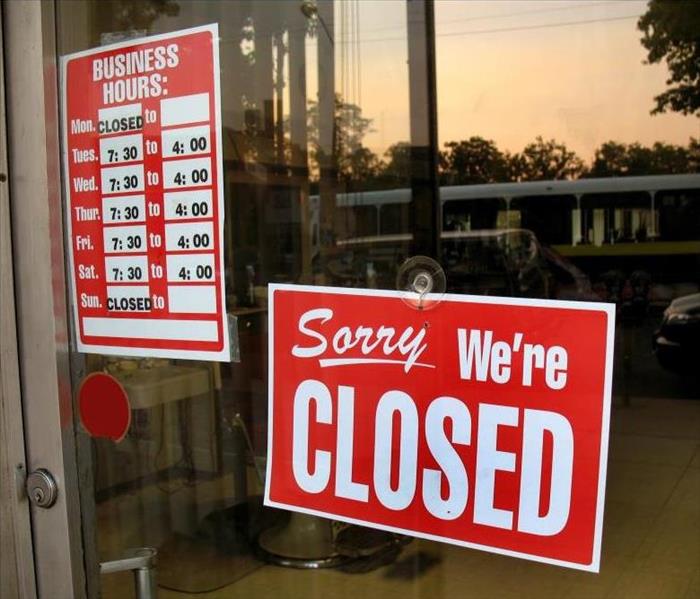Is Your Business Prepared?
3/23/2020 (Permalink)
How quickly your company can get back to business after a tornado, fire, or flood often depends on the emergency planning done today. The regular occurrence of natural disasters demonstrates the importance of being prepared for any emergency. While each situation is unique, your organization can be better prepared if you plan carefully, put emergency procedures in place, and practice for all kinds of emergencies. The following are basic measures business owners and managers can take to begin preparing. A commitment to begin planning today will help support your employees, customers, the community, local economy, and even the country. It also protects your business investment and gives your company a better chance for survival.
Develop a Business Continuity Plan Your organization's risk needs will vary depending on the specific industry, size, scope, and location. Begin by reviewing your business process flow chart, if one exists, to identify operations critical to survival and recovery. Carefully assess your internal and external functions to determine which staff, materials, procedures, and equipment are necessary to keep the business operating. You should also establish procedures for succession of management.
Review Insurance Coverage Inadequate insurance coverage can lead to major financial loss if your business is damaged, destroyed, or simply interrupted for a period of time. Insurance policies vary; check with your agent or provider about things such as physical losses, flood coverage, and business interruption. Understand what your policy does and does not cover.
Prepare Your Emergency Plan Your employees and co-workers are your businesses' most valuable asset. Communication is central before, during, and after a disaster. Include emergency information in newsletters, on your company intranet, in periodic employee e-mails and/or other communication tools.
Practice the Emergency Plan Some disasters will require employees to leave the workplace quickly. The ability to evacuate workers, consumers, and visitors effectively can save lives. If your business operates out of more than one location, establish evacuation procedures for each individual building. If your company is in a high-rise building, an industrial park, or even a strip mall, it is important to coordinate and practice with other tenants or businesses to avoid confusion and potential gridlock.
Secure Your Facility and Equipment Install fire extinguishers, smoke alarms, and detectors in appropriate places. Secure all entry and exit points and plan for mail safety. Plan what you will do if your building, plant, or store is not usable. Secure valuable equipment.
Improve Cyber Security Protecting your data and information systems may require specialized expertise, but even the smallest business can be better prepared. Use anti-virus software and keep it up-to-date. Don't open emails from unknown sources. Use hard-to-guess passwords. Protect your computer from intruders by using firewalls. Back up your computer data and download security protection updates known as patches regularly.



 24/7 Emergency Service
24/7 Emergency Service
